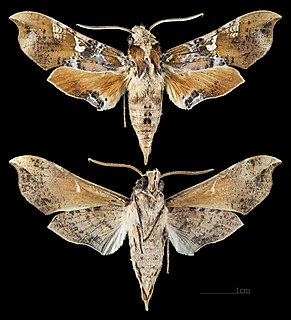Related Research Articles

The gray bat is a species of microbat endemic to North America. The creature once flourished in caves all over the southeastern United States, but due to human disturbance, gray bat populations declined severely during the early and mid portion of the 20th century. 95% of gray bats now only roost in 11 caves. M. grisescens has been listed as federally endangered by the U.S. Fish and Wildlife Service since 1976, and is protected under the Endangered Species Act. Gray bat populations were estimated at approximately 2 million bats around the time they were placed on the Endangered Species list. By the early 1980s populations of gray bats dropped to 1.6 million. With conservation efforts in place, in 2004, gray bat populations were estimated to have reached 3.4 million.

A near-threatened species is a species which has been categorized as "Near Threatened" (NT) by the International Union for Conservation of Nature as that may be vulnerable to endangerment in the near future, but it does not currently qualify for the threatened status.

Callionima is a genus of moths in the family Sphingidae first described by Hippolyte Lucas in 1857.

The southern shrikebill, or brown flycatcher, is a songbird species in the family Monarchidae. It is found in New Caledonia and Vanuatu. Its natural habitat is subtropical or tropical moist lowland forests.

Byturidae, also known as Fruitworms, is a very small family of beetles, in the suborder Polyphaga, comprising fewer than 20 species worldwide. The larvae of some species develop in fruits. Byturus unicolor affects species of Rubus and Geum.

Epipsilia grisescens is a moth of the family Noctuidae. It is found in Fennoscandia, Denmark as well as the Pyrenees, Alps, Apennines, Balkans and Carpathians. In the Alps it is found up to 2,000 meters.

Callionima grisescens is a species of moth in the family Sphingidae. It was originally described by Rothschild as Calliomma grisescens, in 1894.

Sesamia grisescens, the pink sugarcane borer, pink stalk borer, shoot borer, sugarcane borer or ramu shoot borer, is a moth of the family Noctuidae. The species was first described by Warren in 1911. It is found in Papua New Guinea, Seram, the Moluccas and New Britain.
Apisa grisescens is a moth of the family Erebidae. It was described by Abel Dufrane in 1945. It is found in the Democratic Republic of the Congo, Malawi, Mozambique and Zimbabwe.
Episcepsis grisescens is a moth of the family Erebidae. It was described by George Hampson in 1914. It is found in Venezuela.

Abryna grisescens is a species of beetle in the family Cerambycidae found in Eastern Asia in countries like Laos, Malaysia, Philippines and Thailand.
Cylindilla formosana is a species of beetle in the family Cerambycidae. It was described by Gressitt in 1951. It is known from Taiwan.
Cylindilla inornata is a species of beetle in the family Cerambycidae. It was described by Gressitt in 1951. It is known from China.
Cylindilla interrupta is a species of beetle in the family Cerambycidae. It was described by Gressitt in 1951. It is known from China.
Cylindilla parallela is a species of beetle in the family Cerambycidae. It was described by Gressitt in 1951. It is known from China.
Cylindilla makiharai is a species of beetle in the family Cerambycidae. It was described by Hasegawa in 1992.
Chariesthes grisescens is a species of beetle in the family Cerambycidae. It was described by Stephan von Breuning in 1981, originally under the genus Pseudochariesthes. It is known from Kenya.
Xerasia grisescens is a species of fruitworm beetle in the family Byturidae. It is found in North America.
Lejops grisescens is a species of syrphid fly in the family Syrphidae.

Dinera grisescens is a species of bristle fly in the family Tachinidae. It is found in North America and Europe.
References
- ↑ BioLib.cz - Cylindilla grisescens. Retrieved on 8 September 2014.